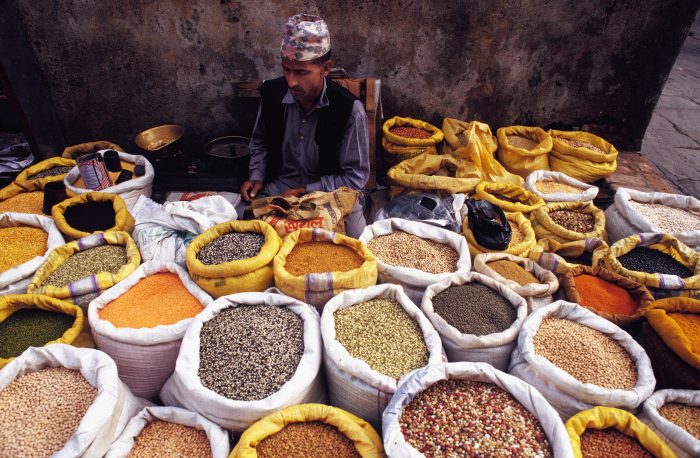Biodiversity is the variety of plant and animal life in the world. Seed saving, exchanging, using and selling are pillars of biodiversity and also a fundamental part of the cultural repertoire of rural communities, especially of indigenous peoples. As a result of generations of exchanging seeds, peoples and entire countries have become interdependent as we all rely on genetic resources that have originated elsewhere for food security.
Agroecology reclaims collective goods such as land, water, seeds and knowledge. Agroecological farmers work with biodiversity to reduce their reliance on chemical inputs. Enhancing biodiversity renders productive food systems year round, increases climate resilience, and contributes to the conservation of abiotic resources.
TOP ARTICLES ON BIODIVERSITY AND SEEDS
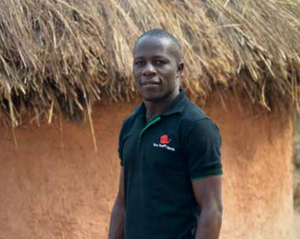 Agroecology ensures our future well-being September 22, 2016 - Edward Mukiibi of Slow Food Uganda appeals to young African farmers, agronomist and food activists to embrace agroecology to safeguard our future. As a young African with a farming background, like many out there, I cannot underestimate the contributions of agroecology to the sustainability of our fragile ecosystems. It is… .......Read more
Agroecology ensures our future well-being September 22, 2016 - Edward Mukiibi of Slow Food Uganda appeals to young African farmers, agronomist and food activists to embrace agroecology to safeguard our future. As a young African with a farming background, like many out there, I cannot underestimate the contributions of agroecology to the sustainability of our fragile ecosystems. It is… .......Read more Heritage grains in Canada: digging our roots, planting our seeds June 20, 2016 - Two years ago Shelley and Tony Spruit started Against the Grain, an initiative that is reviving heritage grains in Ontario, Canada, from field to fork. Their experience demonstrates how family farmers build seed sovereignty and educate consumers on their power to make change. In this article, their daughter Kristen writes… .......Read more
Heritage grains in Canada: digging our roots, planting our seeds June 20, 2016 - Two years ago Shelley and Tony Spruit started Against the Grain, an initiative that is reviving heritage grains in Ontario, Canada, from field to fork. Their experience demonstrates how family farmers build seed sovereignty and educate consumers on their power to make change. In this article, their daughter Kristen writes… .......Read more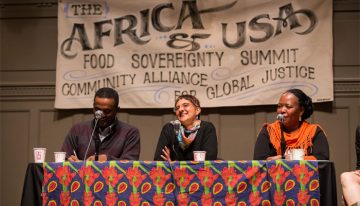 Interview: Mariam Mayet on protecting farmers’ crops from GM June 20, 2016 - Mariam Mayet is the director of the African Centre for Biodiversity (ACB). In a recent report, ACB turns their attention towards genetic modification of non-commercial ‘orphan crops’ and the way this technology is replacing farmer-managed food systems. In this interview Mariam explains what is wrong with genetic modification of these… .......Read more
Interview: Mariam Mayet on protecting farmers’ crops from GM June 20, 2016 - Mariam Mayet is the director of the African Centre for Biodiversity (ACB). In a recent report, ACB turns their attention towards genetic modification of non-commercial ‘orphan crops’ and the way this technology is replacing farmer-managed food systems. In this interview Mariam explains what is wrong with genetic modification of these… .......Read more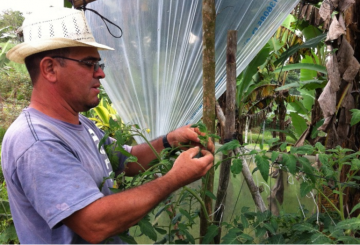 Improving access to vegetable seeds for resilient family farms in Costa Rica April 16, 2016 - A group of coffee farmers in Turrialba, Costa Rica, is successfully exploring diversification options with horticultural food crops. This is being done in collaboration with two vegetable seed banks that allow farmers to use varieties freely under the multilateral system of FAO´s International Treaty on Plant Genetic Resources for Food… .......Read more
Improving access to vegetable seeds for resilient family farms in Costa Rica April 16, 2016 - A group of coffee farmers in Turrialba, Costa Rica, is successfully exploring diversification options with horticultural food crops. This is being done in collaboration with two vegetable seed banks that allow farmers to use varieties freely under the multilateral system of FAO´s International Treaty on Plant Genetic Resources for Food… .......Read more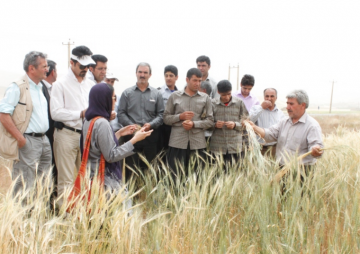 Evolutionary populations: Living gene banks in farmers’ fields in Iran April 16, 2016 - Efforts to rapidly increase on-farm biodiversity are a matter of urgency in an era of climate change. To do so, farmers need better access to the genetic material of research stations and gene banks. Collaboration with scientists who are willing and able to work together with farmers is crucial. The… .......Read more
Evolutionary populations: Living gene banks in farmers’ fields in Iran April 16, 2016 - Efforts to rapidly increase on-farm biodiversity are a matter of urgency in an era of climate change. To do so, farmers need better access to the genetic material of research stations and gene banks. Collaboration with scientists who are willing and able to work together with farmers is crucial. The… .......Read more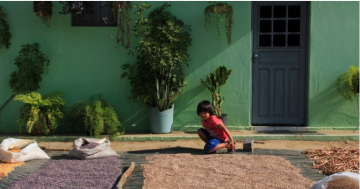 Seed banks and national policy in Brazil April 16, 2016 - Increasingly, seeds are the domain of professional breeders, agribusiness and policy makers. They decide what makes for a good variety and they develop legislation that excludes other varieties. Despite this, farmer organisations and social movements in Paraíba, Brazil, have managed to strengthen decentralised farmer-driven seed selection and distribution systems and… .......Read more
Seed banks and national policy in Brazil April 16, 2016 - Increasingly, seeds are the domain of professional breeders, agribusiness and policy makers. They decide what makes for a good variety and they develop legislation that excludes other varieties. Despite this, farmer organisations and social movements in Paraíba, Brazil, have managed to strengthen decentralised farmer-driven seed selection and distribution systems and… .......Read more
